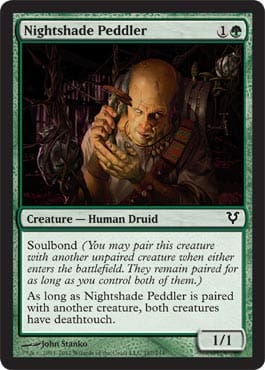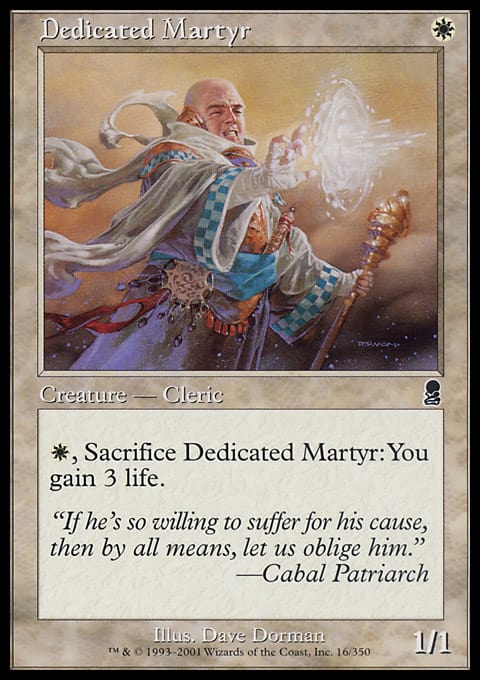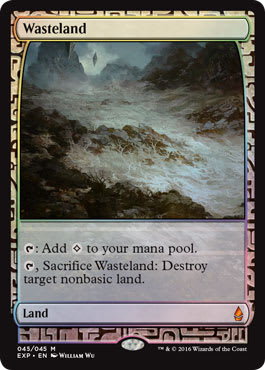As with any business, you sometimes have to reevaluate your strategy and see if you are maximizing your potential output and seeing that turn around into profit. As of the past few weeks, I have been doing just that, and since I have moved into the retail end of the Magic world, I have found myself becoming more distant from both the community and prices. That is all going to change as I begin my quest to revisit my roots and start traveling once again on a regular basis to both scour the nation for cards and attend far more events.
The next six weeks will host three Grands Prix and a few smaller Pro Tour Qualifier–level events that I will be attending in attempts to roll over large amounts of capital and formulate a new business plan, one that, unlike retail, has yet to wear on me. This may seem like an interesting lead into a financial article for the masses, but bear with me for a moment. As I stated, I will be attending a large number of events in hopes of using buy lists as a primary source of income once again. The issue with retail for anyone is the lack of stock and a name. It is hard to sell cards for a reasonable rate no matter how much you work at it without some sort of push from the public. Many sites use ad space or attend events to purchase cards and build a reputation—except the average booth at a major event is so expensive that the amount you need to bring to break even is out of most people’s ranges. So, if you are looking to still work with cards but don’t have the capital initially to deal with the big names and offer competitive prices, what do you do?
The simple answer to this question is to work with local stores that may be too burdened to expand their customer base outside of their doors. Some stores just don’t have the manpower or knowledge base to expand their singles market, which only hurts them down the line, as they turn away collections or shoot low numbers only to be rejected. Helping any struggling game store find its way into the market can be beneficial for both parties and can help you build a reputation without needing the exorbitant amount of money it takes to sit behind the booth.
This can be done in a number of ways, but first, it should be noted that many stores will be hesitant at first to allow someone to handle their stock in trust. The best idea is to work with the store for a while and help them buy collections, leave your number, and have them call you when collections come in or have them give your number to the patron if they are not interested. This will allow you to help the store out, but it can also net you a cut of the buy if you hash that out with the owner—or at least you’ll have a shot at the collections they may pass on.
From that point, you can decide how much you want to dedicate yourself to working with the store. Perhaps you have a full-time job and cannot run an online store for them, but you do attend an event every few months. This can be as simple as creating a buy list for the cards they cannot move and taking them to the event for the store to move for a small percentage. Offering your cut in store credit can also allow you easier negotiations while at the same time building your personal collection if you plan to go beyond that point on your own.
If you have more time and can help organize a store’s stock, that can also be helpful to some. It is much easier to both sell and buy cards if you know what you already have in stock, and keeping up with this also allows an easy transition into online sales or buy-listing down the line. Most store I walk into that are overburdened and looking to sell cards are not doing so because they need the money so much as it helps them organize by downsizing.
For those who may have the opportunity to buy in large collections but don’t always have the means to out them, this can also create a more regular turn around, meaning not only does the money come in quicker, but it also keeps the stock in the store ever-rotating, which can only help the local players. Many people view shop crawls as an attempt to pull one over on stores, but that in and of itself is a flawed standpoint, as you can never force a store into selling to you. If a store is choosing to out cards at less than retail, it usually has a reason—whether it be monetary or not. What I, and some of you, can provide is a way for store owners to feel more comfortable spending larger amounts of money on collections while constantly having an outlet through which to move them. This step also provides active players with a greater card pool, as those that have been out of the game are more likely to be able to sell their cards if a store can work with them.
Providing any number of services can help an entire community, even creating an eventual point at which the shop owner can lower his or her prices from high-end retail, as he or she has the ability to move more, product allowing his or her margins to fall if he or she so chooses. I have seen more than a few stores nearly on their last legs merely because they had no one to organize their stocks and turn some of it over. As a person looking to make a living from this, I find that these stores are a bit bittersweet, as they do usually have a great deal of money lying around they don’t mind parting with, but if they had everything organized, it would be much easier to work with them.
Not every shop is looking for a way to continue to offer sales for a particular game, which is also where shop-crawling comes in. Every time you are able to buy a shop out of cards, it is unlikely that the store is doing so because it dislike the game or can’t keep up; usually, it just comes down to a player base’s disappearance. These stores may sit on the same cards for years, and though it may seem that you are taking advantage of the store’s dilemma, you, in many cases, are also providing the store with a way out of a sinking ship in its area, thus allowing the store the capital to reinvest somewhere else. Stores have to accommodate their player bases, and if the area suddenly dries up, a store may have to readjust, and if the local crowd for a particular game leaves, the store is many times stuck with the remnants of stock just gathering dust.
I have seen a great deal of push coming from Wizards to help the brick-and-mortar stores rise back from the Internet market, but not everyone has a large enough player base to weather the storm. If you have any local shops you feel could use some help and have the time, offer up your services, as you can only help your own brand by coordinating the local market in your area. Beyond just store support, you may find yourself being able to offer similar services to local community members. Many people do not have access to larger events or may not understand how to buy-list correctly; this is not to say they cannot figure it out, but most people treat Magic as purely a hobby, meaning time and effort toward not playing may be relatively slim. I spent a few years in college and even high school making extra income from cards, and had I had a store to work with, I feel the process may have been much more productive on a larger scale.
I will update over the next few weeks in both article form and through social media outlets, such as Twitter, as to my progress. If you have any questions regarding how to build a relationship locally or about anything involved in the process, as always, please feel free to leave them in the comments section below. Next week, check back in as I jump back to last week and talk about another facet of long-term sustainability for those not just into Commander. Thank you for reading, and if you happen to be at any of the upcoming Grands Prix, stop by and say “hello.” I always enjoy reader feedback.
Ryan Bushard
























